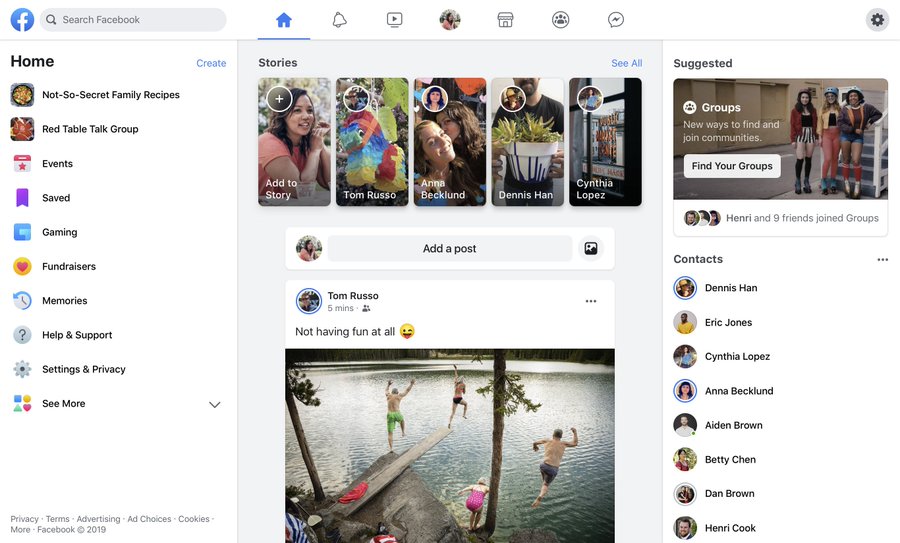 |
| At F8, a redesign and new features across all products |
Facebook CEO Mark Zuckerberg rolled out a redesign of his social networking app with a focus on communities known as Groups, and a layout that loses the blue.
The redesign of the main Facebook app was the biggest cosmetic change for the company in five years. “The app isn’t even blue anymore,” Zuckerberg said.
“Now, look I get that a lot of people aren’t sure that we’re serious about this,” Zuckerberg said. “We don’t have the strongest reputation on privacy right now, to put it lightly.”
He then outlined his vision for services that enable private interactions, messaging encryption and data security. “I believe the future is private,” Zuckerberg said. “This is the next chapter for our services.”
The redesign of the main app, for instance, gave a more prominent position to Groups, the communities built around shared interest, a sign the company wants to foster stronger social ties. “It all adds up to this feeling that Groups are now at the heart of the experience just as much as your friends and family,” Zuckerberg said.
Facebook also is starting to connect all the apps so that people on Messenger can message people on Instagram and WhatsApp. “We’re rewriting Messenger from scratch to deliver the best private messaging there is,” Zuckerberg said.
The messaging app has a new “friends” tab, too, which aggregates Stories, the 24-hour video messages, Facebook posts and WhatsApp updates.
The changes are part of the “interoperability” strategy, which will ultimately make it easier for advertisers, too. For instance, brands can place Stories ads across all the Facebook properties.
Facebook also promoted its augmented reality platform, which it opened to all developers on Tuesday. The platform is called Spark AR, similar to Snapchat’s Lens Studio and Google’s ARCore, and it allows developers to build augmented reality features that people access through the apps. Augmented reality can transform a video with animations, superimpose digital information on to the real world through the camera, and showcase virtual products, among other uses.
More than a billion people have tried augmented reality on Facebook apps and services, so far, Zuckerberg said. The Spark AR platform had been available widely available for developers on Facebook and Messenger, but only in a limited capacity on Instagram, before it was fully opened on Tuesday.
“Everyone is going to be able to build for it,” Zuckerberg said.


